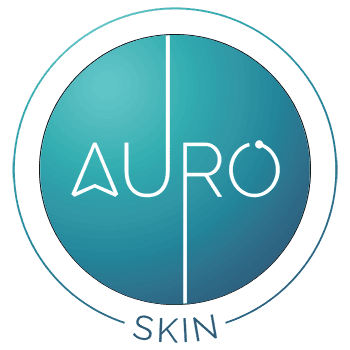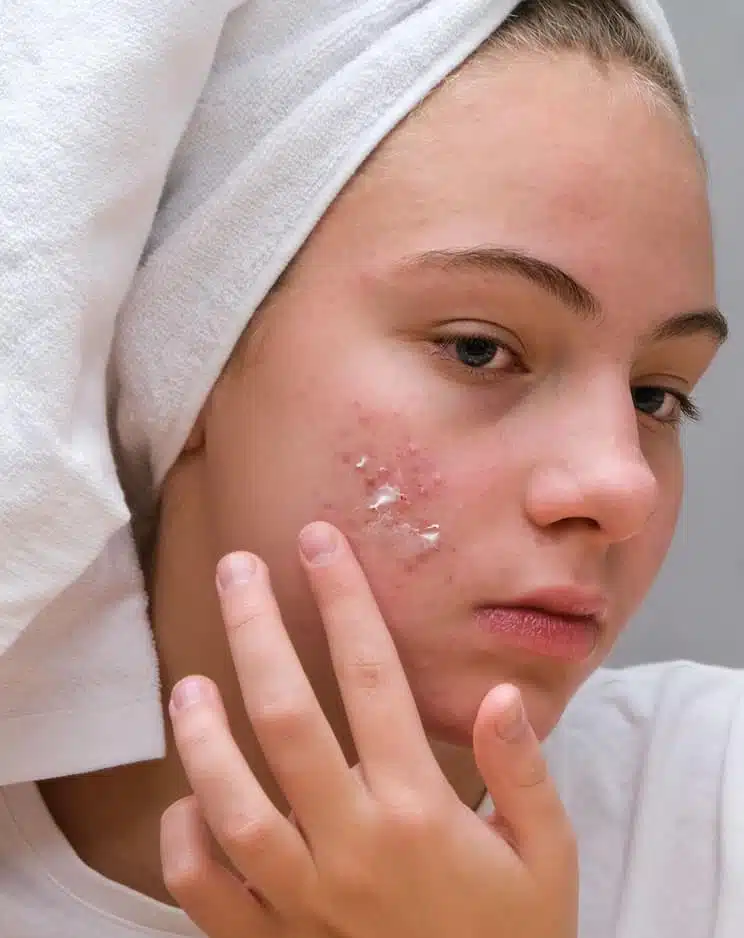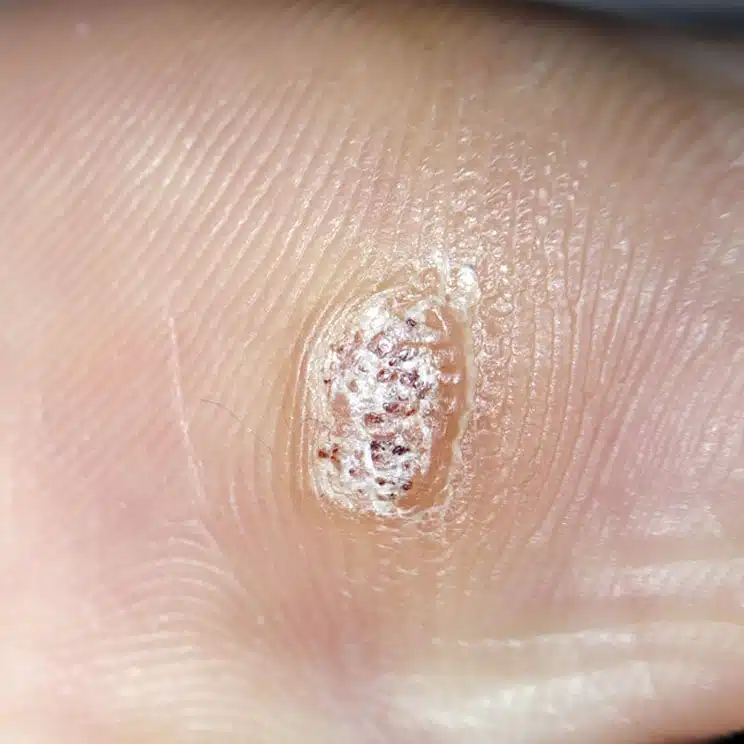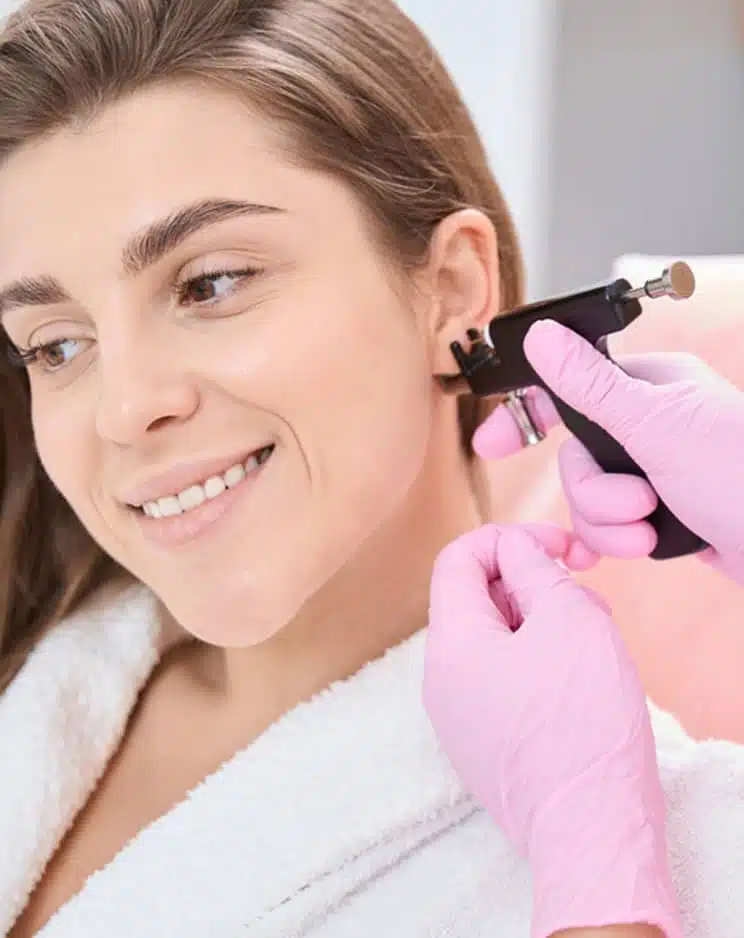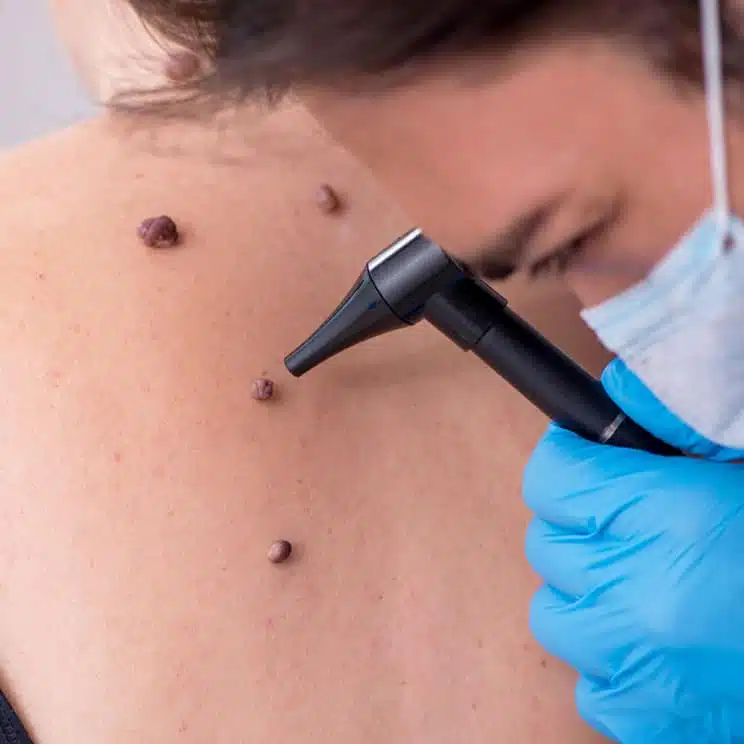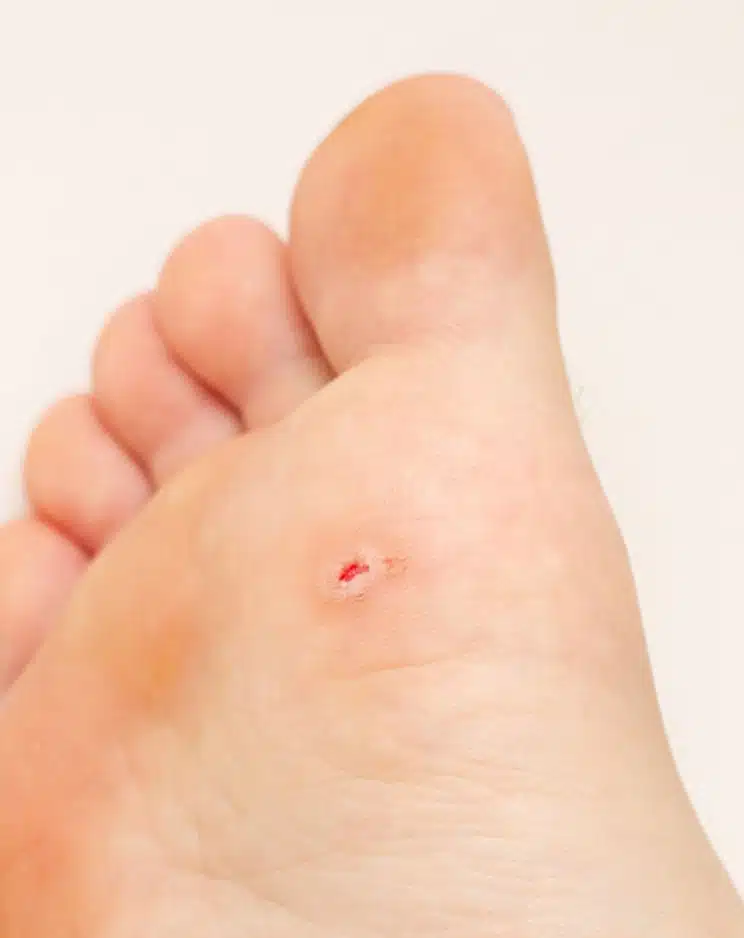- +91 91360 95925
- hello@auroskin.in
- 2nd Floor, Sapphire Plaza, Opp CNM School, Dadabhai Road, Vile Parle West, Mumbai
Are you dealing with the annoyance and discomfort of warts? They can be unsightly and sometimes even painful, affecting your daily life. Fortunately, there are numerous wart removal treatments. At Auro Skin Clinic, we offer a range of safe and effective wart removal treatments in Mumbai, helping you have clean and healthy skin. We understand the distress caused by warts, and our team of experienced dermatologists is committed to providing personalised treatments according to your needs.
What Is Wart Removal Treatment?
Wart removal is a dermatological procedure that removes warts—small skin growths caused by a human papillomavirus virus—from hands and feet or any part of the body. Many people opt for wart removal to restore clear skin, prevent warts from spreading further, and end the misery of painful warts in sensitive areas.
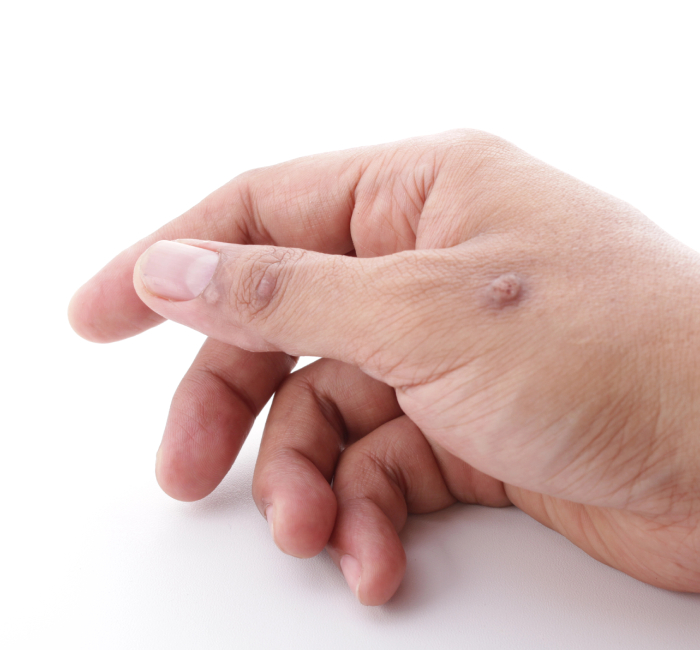
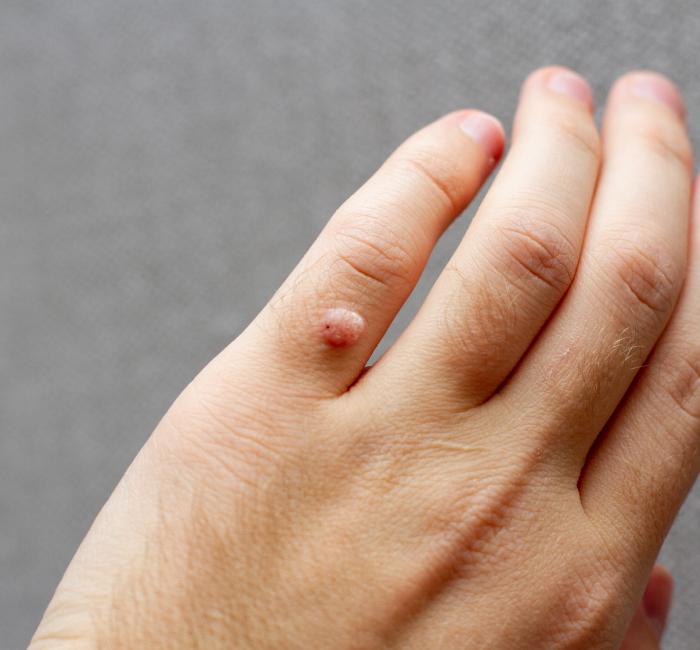
Procedure of Wart Removal Treatment
1. Consultation
Our wart removal doctors in Mumbai diagnose the location, size, and type of wart to recommend the best possible removal. They also evaluate your skin to tailor the treatment according to your needs.2. Pre-Procedure
Instructions, such as skin preparation guidelines, are given to the patient before the procedure.3. During The Procedure
Once your warts are assessed, our trained Skin Specialists in Mumbai perform wart removal in one of the following ways:- Cryotherapy: Liquid nitrogen is applied to the wart using a spray or cotton applicator, freezing and killing the wart cells. The extreme cold gradually destroys the wart tissue, causing it to fall off naturally over time, with minimal skin irritation.
- Surgical Excision: For larger or persistent warts, surgical excision is where the area is numbed with local anaesthesia and then very carefully cut. This method ensures full removal, is effective in cases where warts have failed treatments elsewhere, and should only ensure little tissue damage.
4. Post-Treatment
We provide aftercare instructions following the treatment to ensure proper healing and a lesser risk of an infection. A follow-up appointment may be scheduled to check the results and ensure successful wart elimination.At Auro Skin Clinic, we offer the best wart removal treatment in Vile Parle, Mumbai, to help you achieve clear and wart-free skin!
Comprehensive Dermatological Services
Benefits of Wart Removal Treatment
- Quick and Convenient: Cryotherapy treatments are quick, typically taking less than 10 minutes per wart with minimal downtime, making them ideal for patients seeking fast, effective results.
- Lower Risk of Viral Spread: Cryotherapy effectively kill HPV virus particles within the wart, reducing the chance of spreading the virus to other areas and lowering the risk of developing new warts.
- Effective for Resistant Warts: Surgical excision are highly effective for stubborn, treatment-resistant warts, including plantar and periungual warts around fingernails or toenails.
- Enhanced Skin Appearance: Our minimally invasive techniques minimise scarring and restore natural skin texture—particularly beneficial for facial warts in visible areas.
- Reduced Risk of Recurrence: With comprehensive, dermatologist-led treatment, we target the full wart depth, ensuring lasting results and a much lower chance of regrowth.
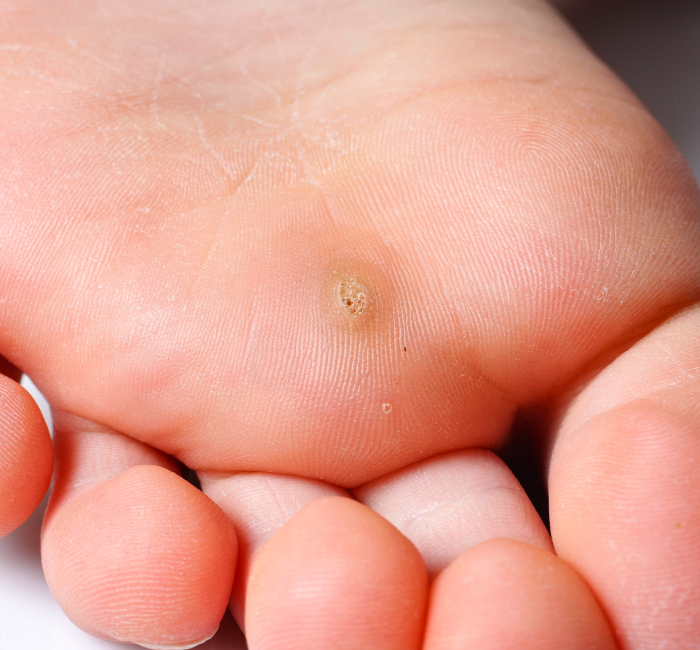
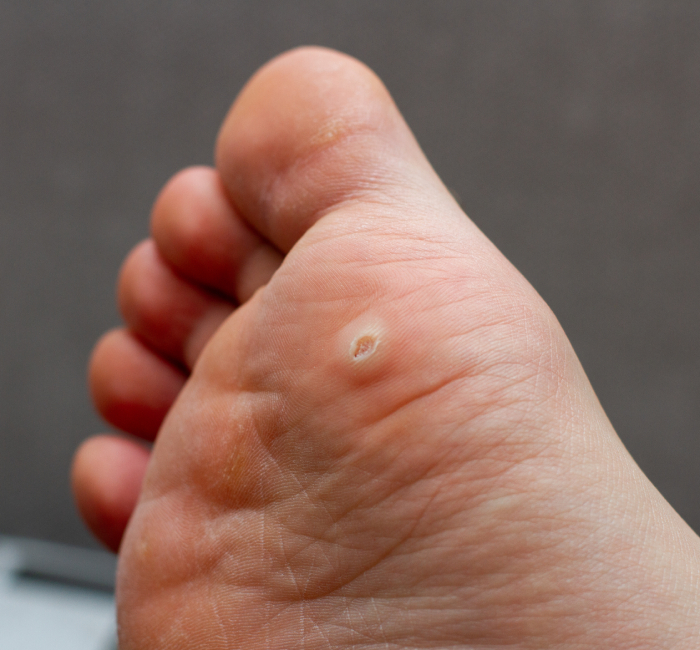
Why Choose Auro Skin Clinic For Wart Removal Treatment in Mumbai?
Our clinic delivers exceptional wart removal and skin treatments tailored to your unique needs in Vile Parle. Our highly trained experts specialise in wart removal techniques, ensuring precise application and natural-looking outcomes. With advanced technology and strict hygiene protocols, we prioritise your safety and comfort throughout treatment.
Our clinic offers expert care and advanced treatment options for those seeking top-quality wart removal in Vile Parle. Contact us today to schedule a consultation and take the first step toward clear, wart-free skin!
Our clinic offers expert care and advanced treatment options for those seeking top-quality wart removal in Vile Parle. Contact us today to schedule a consultation and take the first step toward clear, wart-free skin!
FAQ's Related to Wart Removal Treatment in Mumbai
1. Do warts go away on their own?
Warts take a lot of time to go away, months or years. They can be bothersome, so many people want to get rid of them as quickly as possible and try to treat them well.
2. Is wart removal painful?
Wart removal can be painful depending on the method used, but it is usually not painful because of numbing medication.
3. How long does it take to recover from wart removal?
The time to recover from wart removal depends on the type of treatment and the location of the wart. It can take a few weeks to heal. You should keep the treated area clean and dry and take painkillers if needed. Attend follow-up appointments to see whether your healing is right on track.
4. Are there any side effects of wart removal treatment?
You might feel slight burning, redness, or peeling. However, these symptoms subside after some time. If they persist, you should visit your doctor.
